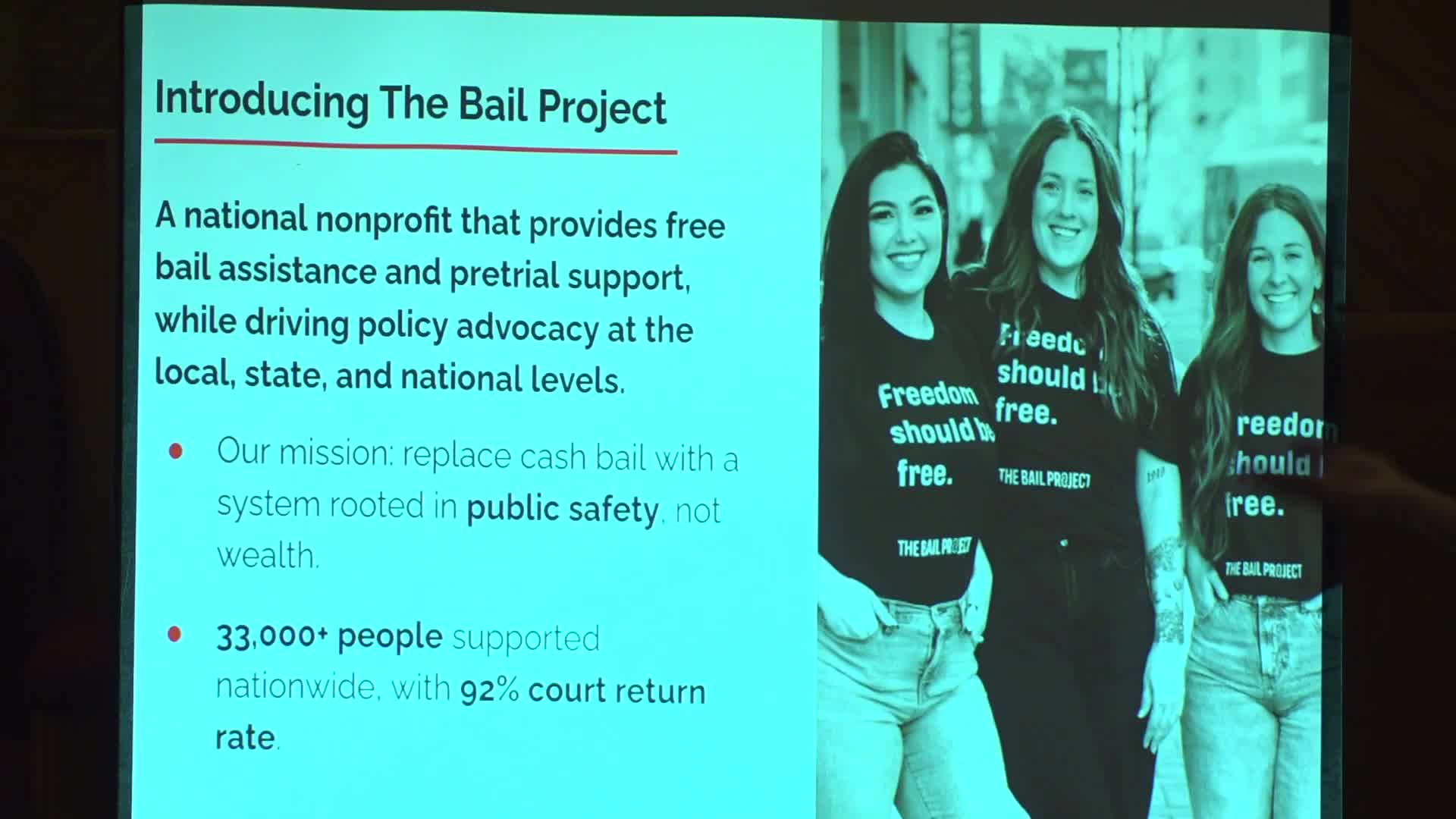Bail Project staffer describes local work, statistics and racial disparities at Missoula talk
Get AI-powered insights, summaries, and transcripts
Subscribe
Summary
Riley Pavlich of the Bail Project said her office on the Flathead Reservation has paid bail for more than 300 people, reported high court-return rates, and highlighted racial disparities in Montana incarceration cited in a 2021 Department of Corrections report.
Riley Pavlich, a Bail Project employee who runs the Montana program from Pablo on the Flathead Reservation, told a Missoula audience on Oct. 1 that her office has posted bail for more than 300 people and operates a revolving charitable bail fund that recovers posted bail when cases conclude.
Pavlich said the national Bail Project has bailed about 33,000 people and that the organization reports a roughly 92% court-return rate nationally. On the Flathead Reservation, she said, the program has achieved a 94% court-return rate and last month saw a 98% return rate for her clients.
"We pay bail for people. We have a revolving cash bail fund...we have lost 0 bails in the 4 years that the Bail Project has been operating on the Flathead Reservation," Pavlich said, describing the program as an alternative to for-profit bail-bond mechanics that require a nonrefundable fee.
Pavlich described cash bail as a wealth-based gatekeeping mechanism that detains people pretrial. "The only two countries in the world that use the cash bail system are the United States and the Philippines," she said. She also said roughly 2.5 million people in the U.S. are detained pretrial, a point she raised to underscore the scale of pretrial detention.
Pavlich identified local criminal-justice practices and supportive services that affect return rates and outcomes. She credited the Flathead Reservation's "holistic defense" program — which combines criminal and civil services, case management and medical support — with reducing recidivism. "They've reduced recidivism on the reservation by 64%," she said.
Pavlich also cited racial disparities in Montana prison populations and referenced a 2021 Montana Department of Corrections report: she said Native Americans make up about 7% of Montana's population while representing about 37% of women in the state prison system and about 20% of men. She told attendees the disparity has been stable since the mid-1990s.
On eligibility, Pavlich said the Bail Project screens cases and does not automatically post bail for every charge; she said the program gives higher scrutiny to charges involving intimate-partner violence, child abuse and similar offenses.
In a question-and-answer session, Pavlich described barriers to court access in rural Montana — limited transportation, cell-service dead zones and court-notification failures — and urged local organizers to support tribal sovereignty changes, automated court reminders, citation-in-lieu-of-arrest practices and local bail-fund creation. She said the Confederated Salish and Kootenai Tribes' expansion of felony jurisdiction could offer new opportunities for tribal justice approaches.
Pavlich encouraged volunteers and donors and said the program is exploring expansion beyond the reservation; at the time of the talk she was the organization's only Montana employee.
